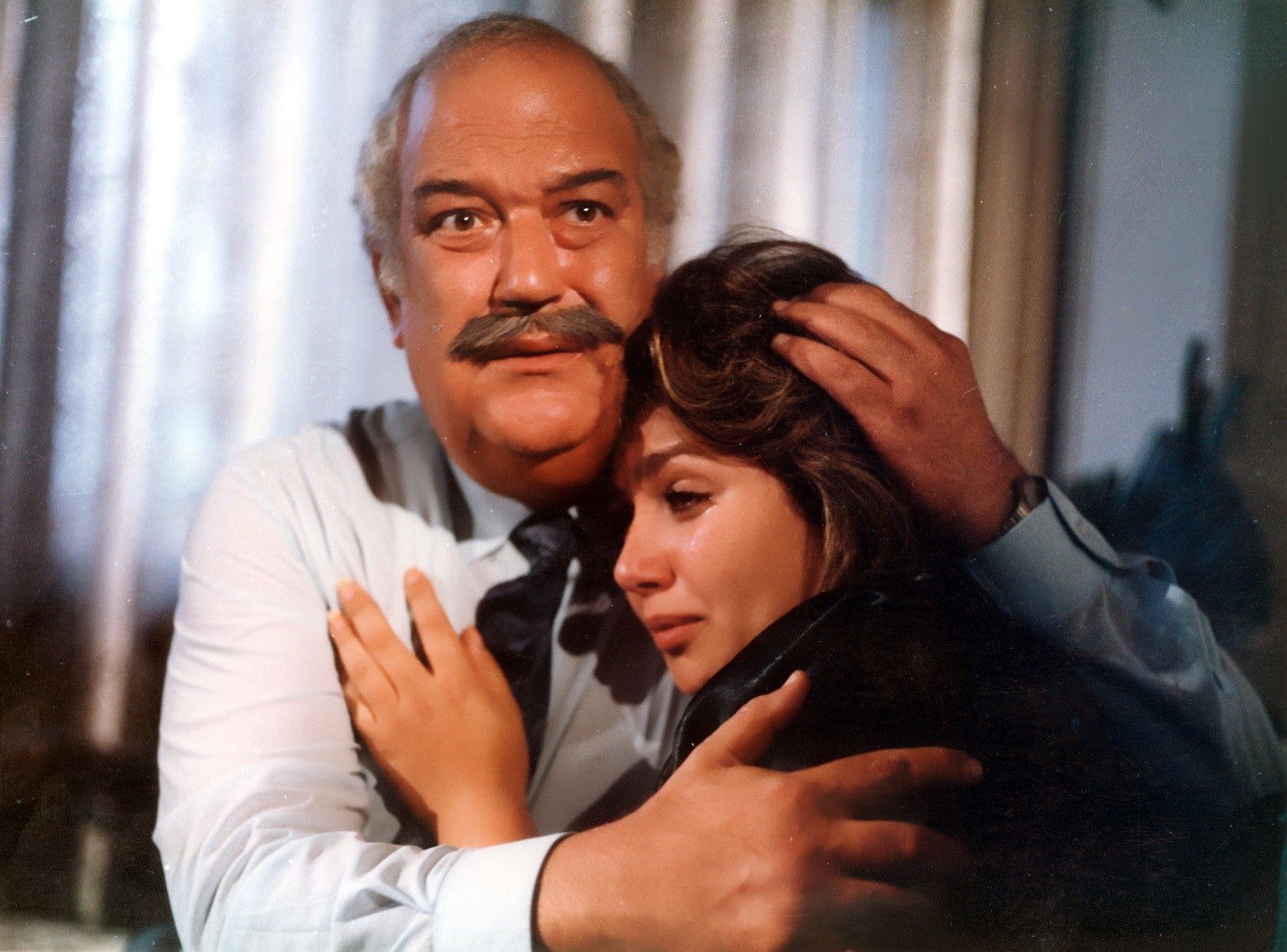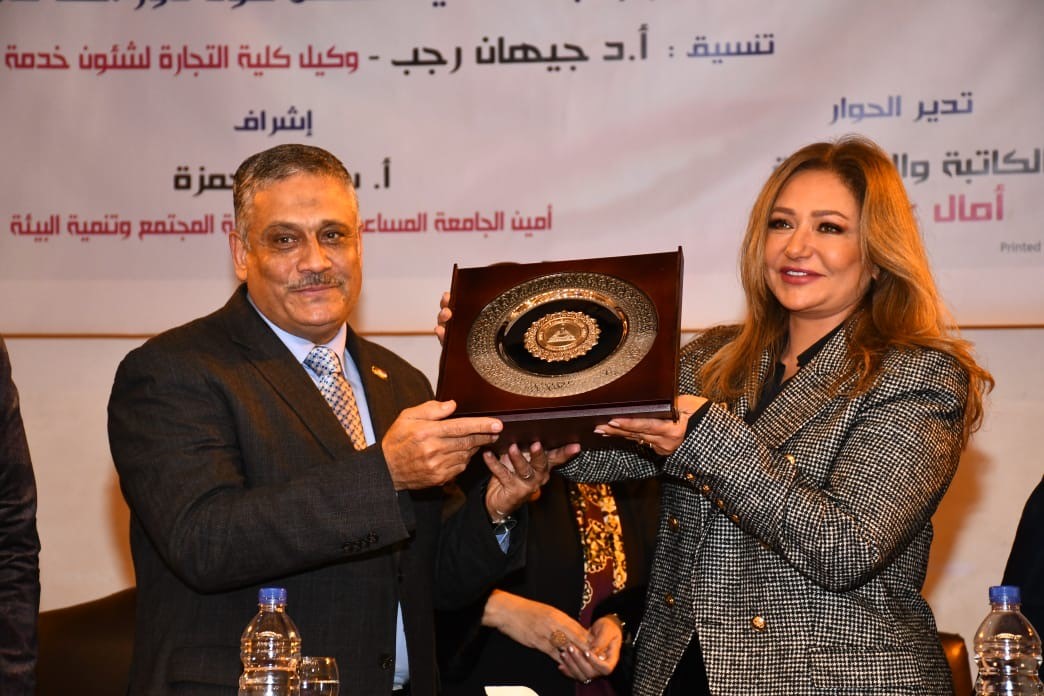Interview by Dr Khalid Ali, Film and Media Correspondent
Laila Eloui has earned her iconic status and popularity in the Egyptian and Arab film industry as one of the most versatile actresses of her generation. Having started as a child performer in radio programs at the age of 7 years, she made a successful transition to TV, theatre and cinema. Her eclectic career boasts 85 films, 41 TV series and 10 theatre plays. In a candid interview, Eloui reflects on her film choices: “Throughout my career, I strived hard to tell stories that concern the wider society in Egypt and the Arab world. Although my initial attention is drawn by the dramatic arc of the character I am playing, I am equally attracted by human stories that portray the social and political circumstances of the time. In the late 80’s, waves of violence spread across Egypt and cinema had to mirror those turbulent times. In ‘The Rapists’ (Saeed Marzough, 1989), it was a brave decision by the director and script writer Faysal Nada to tell a brutal story of a woman who was gang-raped. The film was based on recent true events that shocked Egyptian society. Releasing the film contributed to a strong response from public media denouncing that horrendous crime and triggered passing a law that allows courts of justice to convict such perpetrators in a record time. Without sensationalism, the film explored objectively some of the underlying socio-economic factors that contributed to such violence against women; namely drug addiction and unemployment afflicting our society”. Since 1989 Eloui made a conscious decision to act in films advocating for women’s rights way before the #me too movement demanding justice for women started in the USA in 2006.

Some of Eloui’s films are recognised as classic masterpieces for their insightful portrayal of Arab women stories. Her role as ‘Batta’ (one of three strong women facing up to social injustice) in the romantic drama ‘My life, my love’ (Magdi Ahmed Ali, 1996) was another example. Through their resilience and camaraderie, the three friends stood up to gender-based violence and oppression. She fondly remembers that role: “in that film, we presented a poignant, sensitive but truthful picture of single Egyptian women in a society where staying single is viewed as a sign of failure or inadequacy”.
Acknowledging the universality of the human experience, film adaptations of world literary classics also found a place in Eloui’s career; she was Samiha in the Egyptian adaptation of Victor Hugo’s ‘Les Miserables’ (Atef Salim , 1978), and ‘Khoukha’ in ‘Gone missing’ (Mohamed Khan, 1984) the Egyptian adaptation of H E Bates ‘The Darling Buds of May’
Turning to the popular medium of TV, Eloui consciously adopted a specific agenda: “I am fully aware of my social responsibility as an artist. My career choices were driven by my conviction that as a popular actress, I have an important duty of raising awareness of social ills and injustice particularly towards women. I have to stand up against extremism and intolerance of the other. My societal role extends beyond my film choices; as a role model, I am always trying to find ways to better ourselves as dutiful citizens. That does not mean that I have to support a certain political party; when asked about my political affiliations, my response is always the same: I support the ‘Humanities Party”.
“In ‘Hala and the unknown’ (Mariam Abou Ouf, 2009) we explored a rapidly rising phenomenon of child trafficking where biological parents sell their own children to survive harsh poverty. The initial psychological trauma that befalls upon these unfortunate mothers is followed by ongoing feelings of guilt and remorse”.
In ‘Leila’s Wedding’ (Khaled Alhaggar, 2013) Eloui was the self-sacrificing ‘Leila’ who cares for her father and sister while refusing to get married. She is haunted by her mother’s death at a young age from breast cancer; “I related to Leila’s character on so many levels as we share common traits of internalising pain and facing life’s setbacks stoically. It was a story that had to be told to raise awareness about misbeliefs around breast cancer”.
Mental illness still carries a stigma in Egypt. Exploring that agenda Eloui was the clinical psychologist, ‘Leila’ supporting a depressed patient ‘Omar’ in ‘Leila’s stalker’ (Mohamed Ali, 2009). “I was overwhelmed by how some viewers identified with Omar, and how empowered they were in talking openly about their mental illness after years of suffering in solitude”.
The astute observer of Eloui’s TV outings can spot a certain emphasis on depicting powerful women. In ‘Captain Effat’ (Samih Al-Nakhash, 2010), she was a widowed mother who goes back to the workforce as a coach for a football team. “It was unusual for Egyptian drama to present a woman training a group of ‘macho men’. I was transformed from a clueless kept housewife to an independent ‘super woman’ proving her self-worth in a field that is exclusive for men. In ‘Shams’ (Khaled Alhaggar, 2014) I was another resilient, resourceful woman who overcomes bereavement and divorce by setting up a foster-care home for orphans and a small clothes business for unemployed women”.
Through such a versatile career challenging unjust societal attitudes and practices, Eloui remains an eminent voice of a generation of women fighting for a better society for women and men equally.
